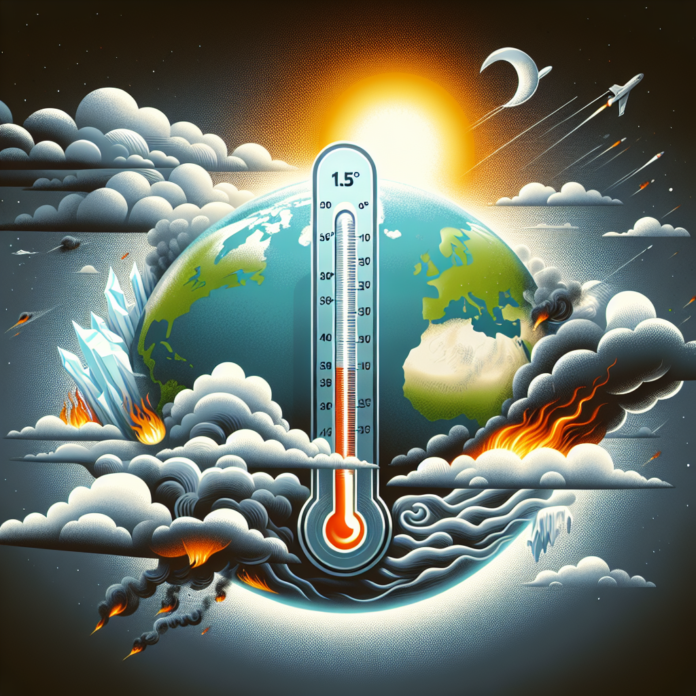Global Heat Levels Projected to Exceed 1.5 Degrees This Year
Global Heat Levels Expected to Exceed 1.5-Degree Crisis Mark This Year
According to recent climate reports, global temperatures are projected to rise above the critical threshold of 1.5 degrees Celsius this year. This alarming trend follows a series of unprecedented heatwaves and extreme weather conditions observed around the world.
The 1.5-degree Celsius limit, established by the Paris Agreement, is seen as a crucial benchmark to prevent catastrophic climate impacts. Exceeding this threshold could lead to severe consequences, including more frequent and intense heatwaves, droughts, and flooding, which threaten ecosystems, agriculture, and human health.
Current Climate Trends
In the past few years, the world has witnessed a series of record-breaking temperatures. The year 2023 has already experienced significant heat events, with many regions recording their hottest months on record. For instance, parts of Europe, Asia, and North America have faced extreme heat, prompting health warnings and increasing energy demands for cooling.
Furthermore, the El Niño phenomenon, which is characterized by warmer ocean temperatures in the Pacific, is expected to exacerbate global warming effects this year. It has been linked to shifts in weather patterns, leading to increased rainfall in some areas while triggering droughts in others.
Impacts on Ecosystems and Biodiversity
The rise in global temperatures poses a serious threat to biodiversity. Many species are struggling to adapt to rapidly changing climates, leading to shifts in habitats and increased extinction rates. Coral reefs, for instance, are particularly vulnerable; warmer waters cause coral bleaching, disrupting marine ecosystems and the livelihoods of communities that depend on fishing and tourism.
Socioeconomic Consequences
The socioeconomic implications of rising global temperatures are profound. Agriculture is being severely impacted, with crop yields declining in many regions due to extreme weather and shifting climate patterns. This not only threatens food security but also exacerbates poverty and inequality, particularly in developing countries.
Additionally, health risks associated with heat stress, respiratory issues from increased air pollution, and the spread of vector-borne diseases are on the rise. Vulnerable populations, including the elderly and those with pre-existing health conditions, are at greater risk.
Global Response and Mitigation Efforts
In light of these alarming trends, urgent action is needed to mitigate climate change. Countries around the world are being called upon to enhance their commitments to reduce greenhouse gas emissions and transition to renewable energy sources. Innovations in sustainable practices, such as reforestation, carbon capture technologies, and improvements in energy efficiency, are critical in the fight against climate change.
International cooperation is also essential. Climate finance and support for developing nations in their efforts to adapt to climate impacts can help mitigate the effects of global warming and foster resilience.
Conclusion
As the planet approaches the dangerous threshold of a 1.5-degree Celsius increase, immediate global action is more crucial than ever. Addressing the climate crisis requires a collective effort from governments, businesses, and individuals to ensure a sustainable future for generations to come. The time to act is now.


